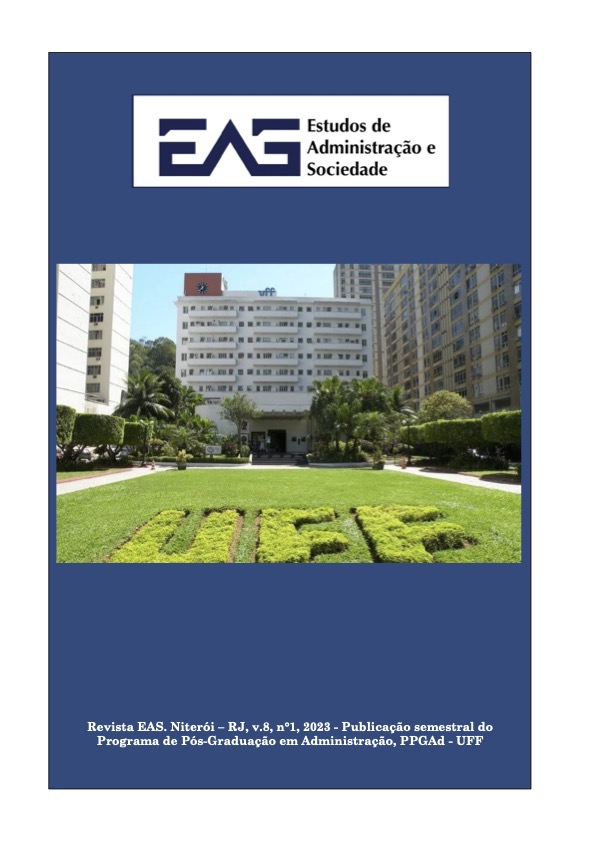The development dynamics of Brazilian public administration
evolution, conflictual coexistence or dialectical imbrication?
DOI:
https://doi.org/10.22409/eas.v8i1.58238Abstract
This article aims to carry out a brief comparative study of the ways of understanding the dynamics of development of Brazilian public administration. To this end, we resorted to formulations by authors of different theoretical influences, methodological conceptions and class connections, aiming to demonstrate the main distances and similarities in the treatment of the question. In this comparative study, we consulted Bresser Pereira (1996; 1998), Nogueira (1998) and Souza Filho and Gurgel (2016), presenting the interpretive logic that they use in an attempt to approach the development dynamics of public administration in the country. We took into account some elements to make the comparison: historical genesis of social formation, role of economic determination, understanding of the nature of the State, appreciation of administration and its forms, social relations and class struggle, transition and insertion in capitalism, in addition to the designated place in the international division of work. At the end of this article, we could see that the procedural logic and elements recovered by Souza Filho and Gurgel (2016) are those closest to the real movement of Brazilian public administration, this finding is accompanied precisely by the more careful treatment carried out by the authors of the central elements that we postulate. Thus, it seems to us that the interpretive key of dialectical imbrication provides us with better understanding elements than the evolutionary and conflictual coexistence keys.
Downloads
Downloads
Published
Versions
- 2023-10-27 (2)
- 2023-06-30 (1)
Issue
Section
License
Autores que publicam nesta revista concordam com os seguintes termos:
- Autores mantém os direitos autorais e concedem à revista o direito de primeira publicação, com o trabalho simultaneamente licenciado sob a Licença Creative Commons Attribution que permite o compartilhamento do trabalho com reconhecimento da autoria e publicação inicial nesta revista.
- Autores têm autorização para assumir contratos adicionais separadamente, para distribuição não-exclusiva da versão do trabalho publicada nesta revista (ex.: publicar em repositório institucional ou como capítulo de livro), com reconhecimento de autoria e publicação inicial nesta revista.
- Autores têm permissão e são estimulados a publicar e distribuir seu trabalho online (ex.: em repositórios institucionais ou na sua página pessoal) a qualquer ponto antes ou durante o processo editorial, já que isso pode gerar alterações produtivas, bem como aumentar o impacto e a citação do trabalho publicado (Veja O Efeito do Acesso Livre).

